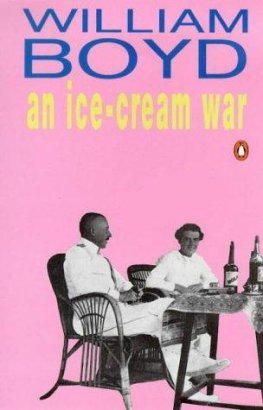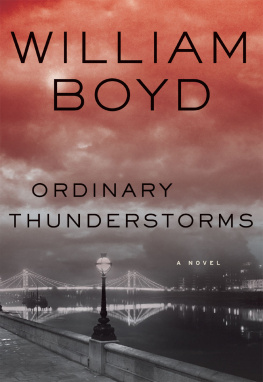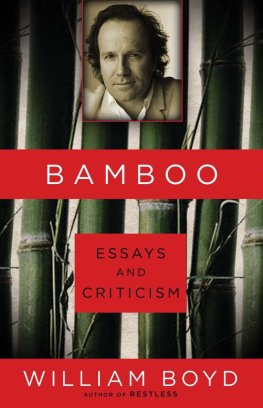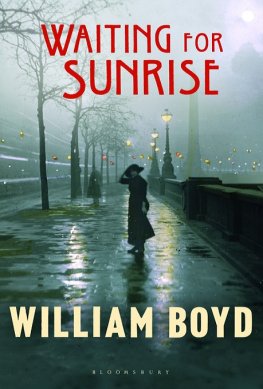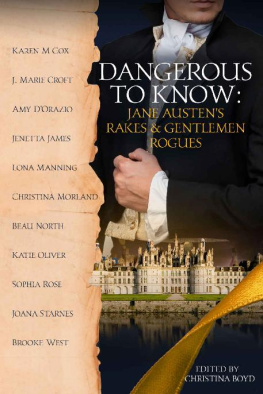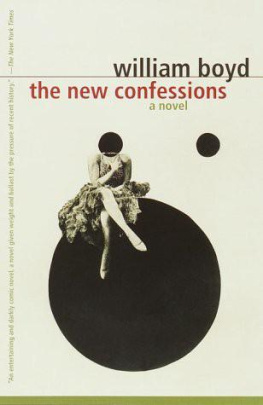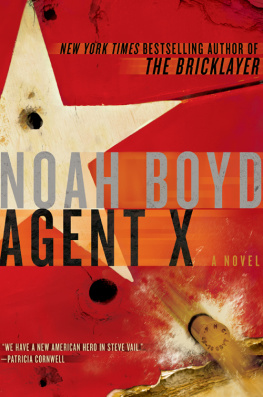William Boyd
An Ice-Cream War
A letter from Francis Harold Burgess, East African Railway Volunteer Force, to his sister, Mrs Arthur Lamont Nairobi, B.E.A. 10 October 1914:
Dear Cecily,
We are all safe here in the present awful turmoil. Of course when war was declared we might have been caught napping if the squareheads in German East Africa had weighed in at once.
I may as well give you the orrid secret as by the time this reaches you the news will be stale, but we are going to take over German East Africa. Eight battalions are coming from India besides artillery and will probably go in at Voi.
One cannot help smiling that while all the nations of Europe are fighting at each others throats we are quietly snaffling the colonies belonging to the common foe. One gets horribly bloodthirsty at these times and wishes that the whole German nation could be wiped out, but a few individuals saved, something after the Sodom and Gomorrah type. I do wish the British fleet could get in amongst the German fleet and put them all to Davie Jones.
As long as I remember there is another Burgess in the country (confound him). He is a Lieut in one of the Indian Reg, 29th Punjabis I think. It is a nuisance as I am pestered with his letters as although they are addressed to Lieut Burgess they come to me. Military titles here at present are as common as leaves in autumn. Even the donkey doctor Stordy is a Lt Colonel and struts about in a staff uniform but is an awful sort all the same. Lt Col. Stordy says the war here will only last two months. It is far too hot for sustained fighting, he says, we will all melt like ice-cream in the sun!
Ever your affect, brother,
F. H. Burgess
PS. I forgot to let you know that I am quite well thank you. Also that you will find a very useful map of B.E.A. in the Annual Report of the Uganda Railway, a copy of which I left in the library.
PART ONE: Before the WarBefore the War
German East Africa, showing route taken by German forces.
1:6 June 1914, Dar-es-Salaam, German East Africa
What do you think would happen, Colonel Theodore Roosevelt asked his son Kermit, if I shot an elephant in the balls?
Father, Kermit said, keeping a straight face, I think it would hurt a great deal.
The colonel roared with laughter.
Temple Smith smiled at this exchange as he supervised the unloading of the horses and equipment. The colonel and his son were sitting on the bench above the cowcatcher at the very front of the train. Temple couldnt see them, yet he heard their conversation as clearly as if they were standing alongside. It must be, he reflected, some trick of the atmosphere, the stillness and dryness of the air.
The train had stopped in the middle of an enormous African plain. A tall sky, a few dawdling clouds. High blond grass, badged with occasional thorn trees and outcrops of rock, stretched away to a horizon of purple-blue hills. Mr Loring, the naturalist, thought he had seen a male oryx of a species which the hunting party had not yet bagged, and so a halt had been ordered.
Temple told the Somali grooms to lead out four Arab ponies and saddle them up. The Roosevelts, Mr Tarlton, the white hunter, and Mr Loring, the naturalist, would ride out in search of the oryx. The side of the long horse-box was lowered to the ground and the first of the small ponies was led down. It paced delicately about, as if testing the earth, and flicked its head and ears in irritation at the corona of buzzing flies that constantly attended it.
Temple took off his thick solar helmet and wiped his forehead on his sleeve. The heat was slamming down on the exposed train and not the slightest breeze stirred the tremendous grass prairie.
He heard, again with astonishing clarity, Colonel Roosevelt grunting as he eased himself down from the cowcatcher and stretched and stumped on the railway sleepers. He seemed to see him in his minds eye, almost as in a vision. The plump and rumpled figure wore a baggy army shirt, ill-fitting khaki jodhpurs buttoned tightly from knee to ankle and sagging around his bottom, and heavy boots. He saw the avuncular bespectacled face with its drooping walrus moustaches squint into the baleful sun. The colonel windmilled his arms and cracked his knuckles. Good day for hunting, he said, and paced stiffly up the track a few yards.
But then Temples view changed miraculously to Kermit. He saw Kermits small handsome features set in a thin smile. Saw him reach for his double-barrelled Rigby shotgun. Heard the oiled mechanical click as the twin hammers were cocked. Saw the barrels slowly raise to point at the colonels broad back.
No! Temple said to himself in horror, dropping the ponys reins he was holding. He spun round and looked up the train towards the locomotive. Sure enough, the colonel stood some fifteen yards up the track, his back to the engine, staring out at the landscape. But Temple could not see Kermit. Astonished at this clairvoyant vision, he sensed that in some way it had been granted to him precisely so he could prevent the assassination of this esteemed military hero and ex-president of the United States of America.
No! Temple shouted again, drawing startled looks from Mr Loring and the black handlers. No, Mr Roosevelt sir, for Gods sake dont do it!
He began to run towards the head of the train, his feet slipping on the earth and stones of the embankment. Again, in a flash of prescient vision he saw Kermits aim settle between his fathers shoulder blades. Saw the knuckle of Kermits forefinger whiten as the first slack was taken up on the trigger.
No! Temple screamed. Stop! Hes your father for Christs sake!
Boom! went the twin barrels. The colonels shirt erupted in a splash of blood and tattered khaki as the two-foot spread of cartridge pellets pitched him onto his face.
Temple flicked up the mosquito net and sat on the edge of the bed. He stood up and stretched. He was naked. He rubbed his shoulders and chest, slapped his buttocks and touched his cock.
Temple was a small stocky man in his early forties, about five foot six with a barrel chest and thick muscular legs. His once compact frame was still just visible even under the amount of excess fat it was nowadays obliged to carry. He had a sizeable belly and there were two diagonal folds of flesh on his back, running from the nape of his neck to his kidneys. His chest and broad shoulders were covered in thick greying springy hair. His jaw line had long ago disappeared into one of his chins. His pepper and salt hair was cut short and parted in the middle and he had a dark bushy, drooping moustache that grew well over his top lip. This moustache was such a prominent feature that it was often the only personal detail that could be recalled of him. His nose was small, almost snub, and his eyes were pale and innocuous.
He walked over to the window and opened the shutters an inch or two. From his room on the top floor of the Kaiserhof Hotel he had a good view of Dar-es-Salaams capacious natural harbour. There, anchored a quarter of a mile offshore, lay the cruiser Knigsberg. Her 4.1-inch guns sounded the last of her salute. The quayside was crowded with spectators and bunting was strung from every available telegraph pole, window-ledge and balcony. With a clash of cymbals the band of the Schtztruppe, the colonys army, started up Deutschland ber alles and the guard of honour was inspected by its commander, Colonel Paul von Lettow-Vorbeck.
Temple turned away smiling, thinking about his dream. He hadnt dreamt about Roosevelt for years. He yawned. He supposed he should be grateful to the old swine, really. After all, without Roosevelt he would never have come to Africa. In 1909, as the manager of a small iron foundry in Sturgis, New Jersey, Temple had reached a stage in his life where the only prospects were increasing boredom and frustration. Then he had seen the Smithsonian Institutes advertisement for a manager to run and organize a hunting and specimen collecting trip in Africa. He had applied, got the job and had embarked with the Roosevelts and their tons of luggage two months later. It hadnt lasted long. The Roosevelts shot anything that moved. Worried about the large numbers of winged and wounded animals they left in their wake, Temple had voiced a mild protest. At which Kermit had promptly sacked him, as the English said.

